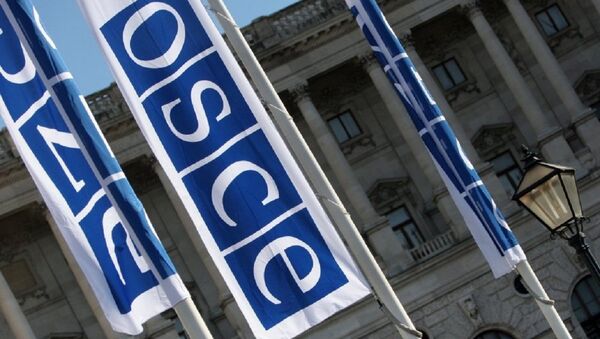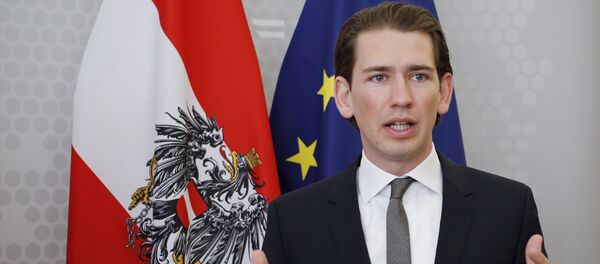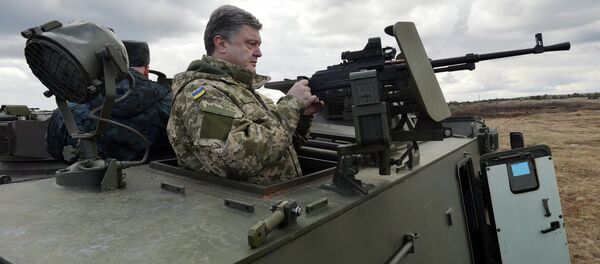The presidency of the 57-member OSCE rotates on an annual basis, and Austria took over the role from Germany. The OSCE's remit ranges from conflict prevention to supporting sustainable economic development and support for human rights.
On Friday Kurz told Germany's Der Spiegel magazine that Austria will seek to use its presidency to alter the EU's emphasis on the politics of sanctions, and urged Europe to begin to lift sanctions against Russia.
"We need to build confidence in Europe again and move away from a system of punishment to a system of incentive."
"With each positive development [in Ukraine] we must ease sanctions step by step," Kurz said, adding the Ukraine conflict had returned Cold-War era thinking in terms of blocs.
Anti-Russian sanctions were first imposed in March 2014, after Crimea's decision to secede from Ukraine and join Russia following the Maidan coup d'etat, and have since been widened to include more Russian individuals and businesses.
In April 2014 conflict began in eastern Ukraine when Kiev launched a military operation in Ukraine’s eastern regions after local residents refused to recognize the new Ukrainian authorities.
Professor Heinz Gaertner of the Austrian Institute for International Affairs (OIIP) in Vienna told Sputnik that the peace process in Ukraine is proceeding slowly because of the lack of a political resolution to the crisis, which could be formed with the help of the OSCE.
“At the moment the OSCE can only strengthen its mission in Ukraine, this is the organization's main task and almost 70 percent of the OSCE budget goes on that, which tells you about the importance of the issue. An expert group needs to be established who will develop a proposal that takes into account the interests of Russia, the West and the third countries. One version could be neutrality for Ukraine on the Austrian model, i.e. international legal neutrality and non-alignment to NATO. This could become a benchmark for the future,” Gaerter said.
As well as the regulation of protracted conflicts such as the one in Ukraine, the improvement of international relations is another pressing task facing the Austrian presidency.
"A lot of attention will be paid to the improvement of relations between Russia and the West. The OSCE is an organization representing all European countries as well as the United States and Canada, so it is a platform for negotiations. Russia and the West are united by common global challenges: the fight against terrorism, arms trafficking, cyber security and, of course, arms control. The resolution of difficult issues such as Ukraine is a long-term process, but that does not exclude progress in the implementation of the Minsk agreements, first of all a cease-fire,” Gaerter said.
Gaerter said that the election of Donald Trump as US President may contribute to a change in climate at the OSCE, and even a breakthrough in the Syrian peace process.
"We hope that the situation in Syria stabilizes, and OSCE could take on the role of mediator to improve relations there. The election of Donald Trump as US President can play a positive role here. If US-Russian relations improve, that will have an impact on the general climate in the OSCE,” Gaerter said.




